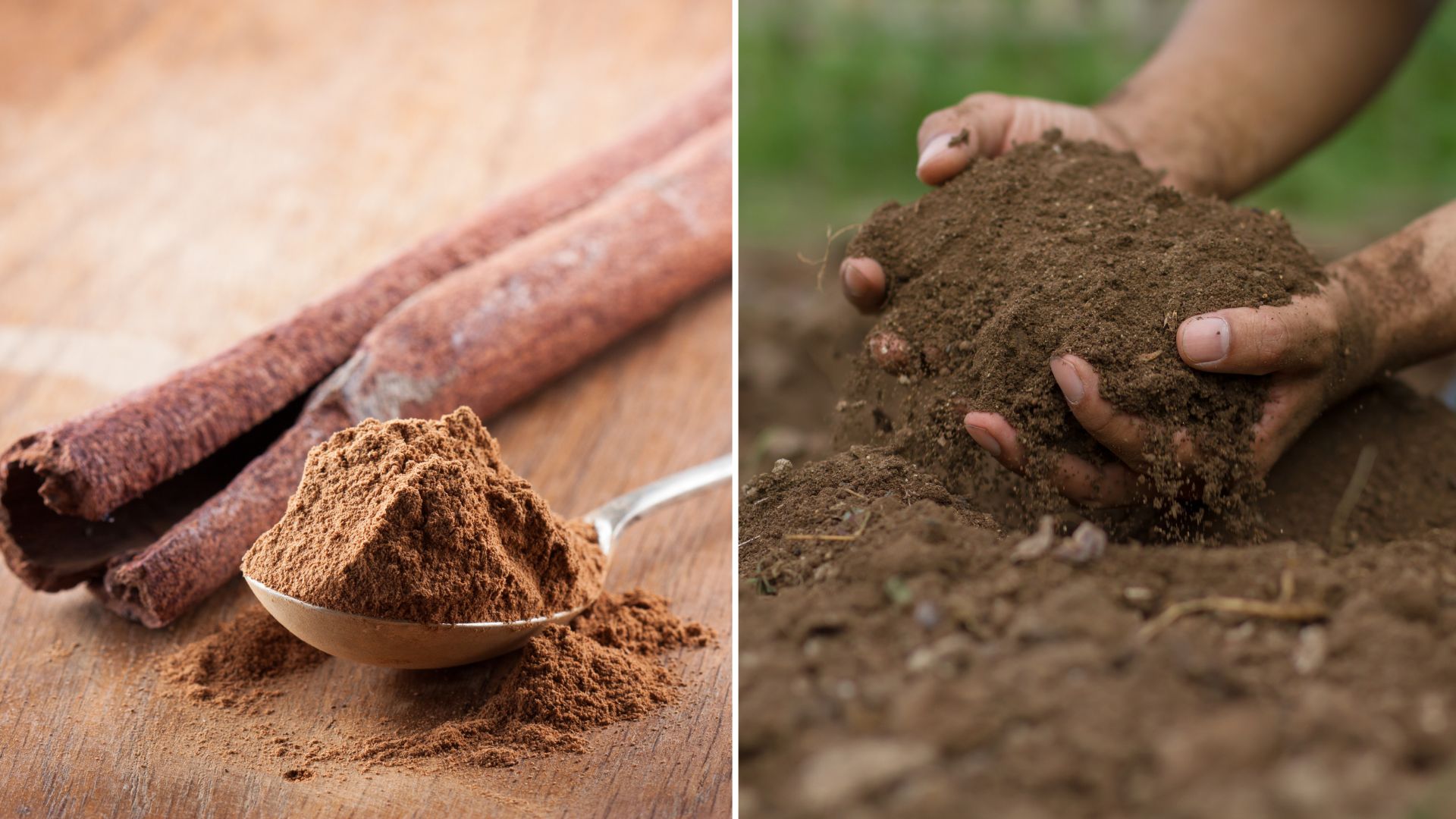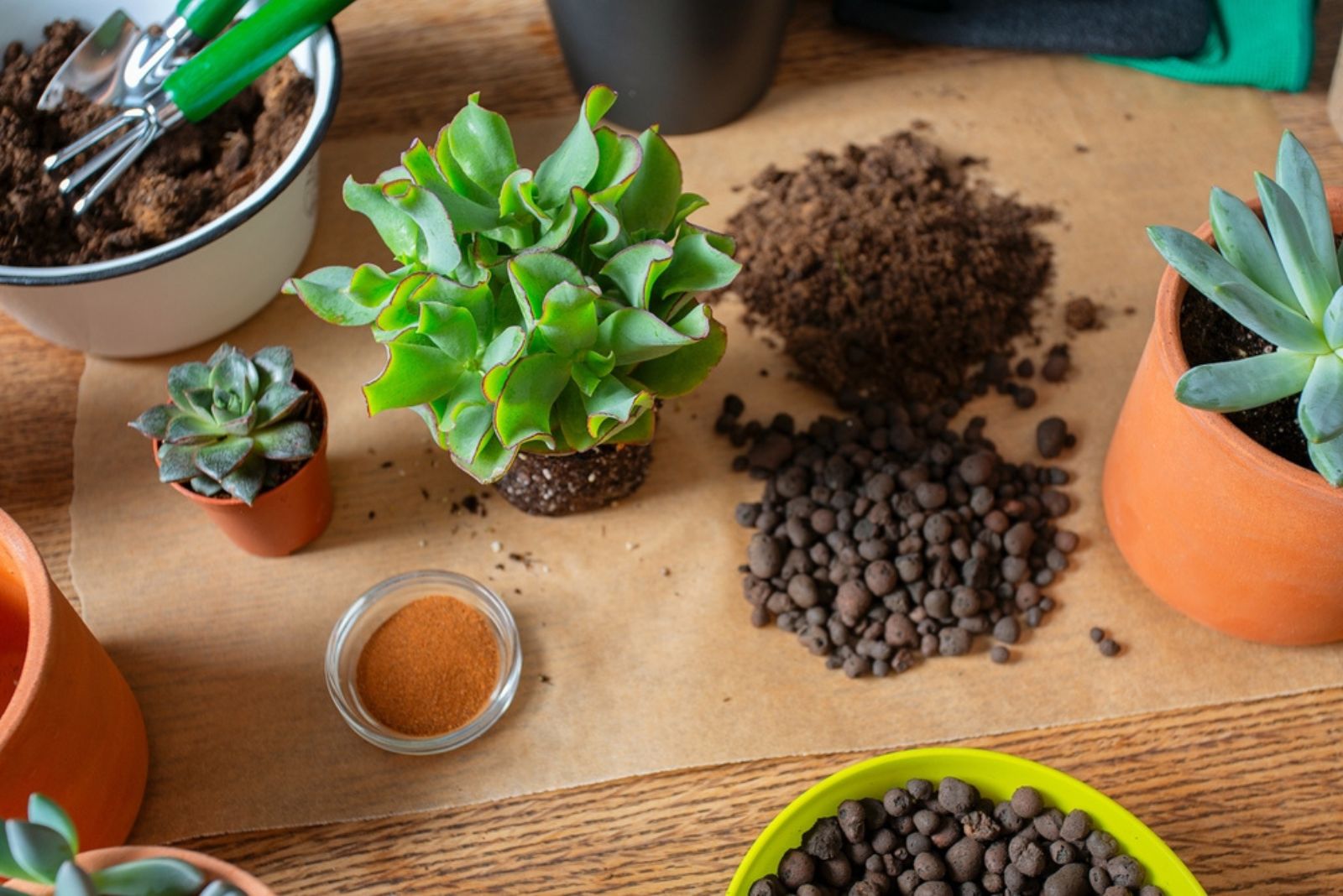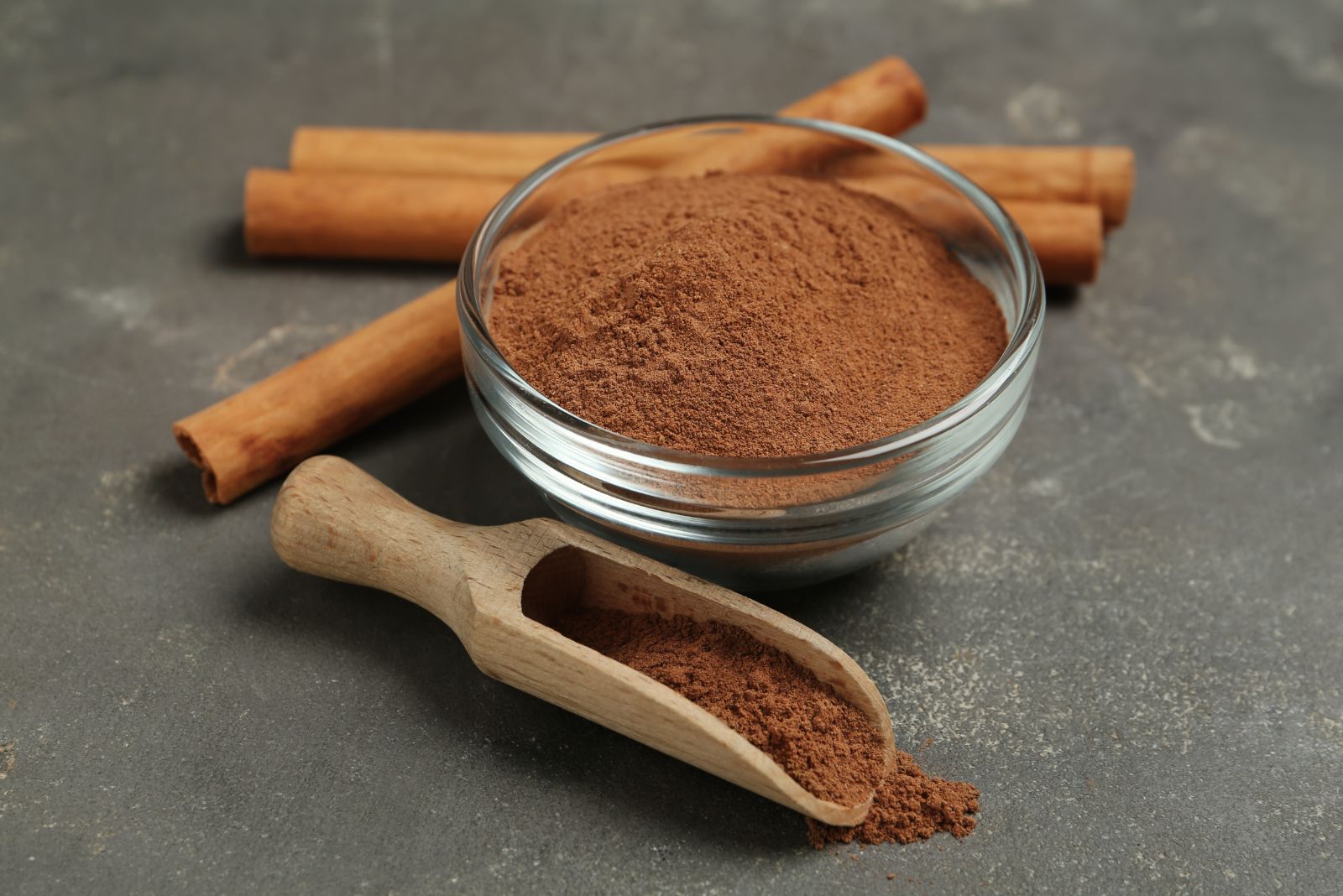Who would have thought that this fragrant and flavorful condiment could be used in the garden? Certainly not me! Yet, here I am, writing about it!
When you look further into it, you will find that cinnamon has antibacterial and antifungal properties. (1)
Therefore, this spice may prevent rotting and help your plants root.
Let’s check out some other reasons why you should use this condiment in your garden, how to do it, and discover its other benefits.
Why Use Cinnamon As A Rooting Hormone?
Since cinnamon has antibacterial and antifungal properties, it can prevent young cuttings from rotting when placed in water or soil and help them root.
But that’s not the only reason many gardeners turn to this condiment when propagating their plants.
Cinnamon represents a shift towards more sustainable living – a lifestyle where you don’t have to buy many products or chemicals to sustain yourself and your garden.
This condiment is also chemical-free, so it won’t disrupt your garden’s ecosystem and soil composition as much as other products would.
Finally, cinnamon is a spice we all have in our homes and is more than affordable. Therefore, you won’t have to spend extra money on rooting hormones.
How To Use Cinnamon As A Rooting Hormone
Here’s a step-by-step guide on using cinnamon as a rooting hormone:
Step 1. Take a spoonful of cinnamon powder and transfer it onto a paper towel or some other surface.
Step 2. Dampen the end of the cutting before dipping it into the cinnamon. Roll the end into the powder, making sure it’s well coated.
Step 3. Place the cutting in soil.
Once you plant the cinnamon-coated cutting, the spice will prevent any bacteria and fungi from harming the cutting.
Cinnamon doesn’t speed up rooting or help plants grow, but it safeguards them from infections which would be detrimental to the cuttings.
In fact, a botanist claims in this reddit post that rooting hormones speed up rooting by only 4%, which isn’t worth it. And you need to be careful not to inhale, touch with bare skin, or swallow this synthetic rooting hormone. (2)
You don’t have to be careful when handling cinnamon because it’s natural and won’t cause any serious harm to your eyes, skin, etc. Also, it is organic and cost-effective, so you don’t have to think twice about whether or not to use it.
Other Cinnamon Benefits
There are many ways in which cinnamon can help your garden, from repelling pests and preventing diseases to treating plant wounds.
It is especially effective against ants, which don’t want to come near it. And while it won’t kill these pests, it will keep them away from your home. This spice can also help your houseplants and deter fungus gnats.
Cinnamon can also keep your plants safe from an array of diseases, including damping-off disease, which afflicts seedlings.
Make a cinnamon spray by mixing this spice with water and leaving it to soak overnight. Strain it through a coffee filter the next morning, transfer it to your sprayer, and mist your plants and seedlings to keep them safe from damping-off disease.
This all-mighty condiment can also prevent mushrooms and slime mold from growing in your containers and on older plants.
Finally, cinnamon can keep your tomatoes and other plants affected by Botrytis cinerea (gray mold) safe and stimulate their growth. (3)
References:
1. Nabavi, S. F., Di Lorenzo, A., Izadi, M., Sobarzo-Sánchez, E., Daglia, M., & Nabavi, S. M. (2015). Antibacterial Effects of Cinnamon: From Farm to Food, Cosmetic and Pharmaceutical Industries. Nutrients.
2. Hormex Rooting Powder No.8 for Rooting Difficult To Propagate Plants such as Evergreens and Dormant Leafless Cuttings . U.S. EPA, Pesticide Product Label.
3. Kowalska, J., Krzymińska, J., Jakubowska, M., & Tyburski, J. (2019). Cinnamon Powder. An In Vitro and In Vivo Evaluation of Antifungal and Plant Growth Promoting Activity. European Journal of Plant Pathology.



